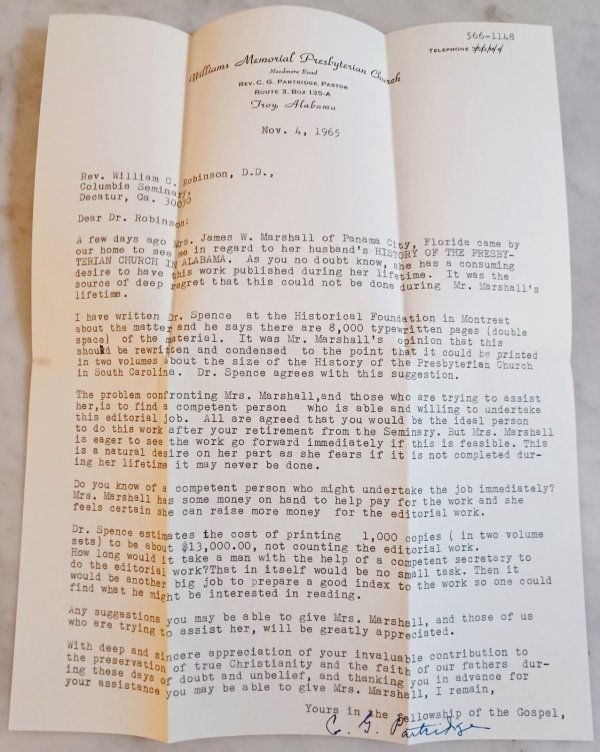Have you ever found something in an old bookstore, or perhaps on Ebay, that turned out to be an historical treasure? The story that follows is a reminder that God's hand of providence overrules and directs all of history to his own glory.
"On one distant October day in the early autumn of 1845, a twenty-five year old divinity student at Hampden-Sydney began taking notes for his seminary class in Senior Theology. And so this tale of Texas, like so many good things, had its origin in Virginia.
Fifty-seven years later, a somewhat older, but still youthful, minister entered a second-hand bookstore more than twelve hundred miles away, in Houston, Texas. Noting a bundle of manuscripts which appeared to be destined for the rubbish heap, he found, upon examination, that they were the same notes begun by the young Virginian almost six decades before. The dealer was gratefully willing to be spared the trouble of destroying the papers, and the finder departed from the shop with them under his arm. Such were the circumstances under which Rev. Samuel Mills Tenney acquired the notes made by Robert Lewis Dabney as the latter sat in Professor Samuel B. Wilson's classroom at Union Seminary.
...
The Dabney Papers, however profitable to their transcriber, were to exert a moving influence on Mr. Tenney, the ultimate effect of which was to determine the course of his life's work. The unseemly fate from which they had been so incidentally, yet providentially, rescued, caused him to ponder, in studied fashion, the all-too-frequent manner in which great men and those things associated with them are wont to be forgotten and neglected by their successors, or even their contemporaries; and the crystallization of these deliberations was manifest in the organization during the fall of the same year (1902) of the Presbyterian Historical Society of the Synod of Texas, with Mr. Tenney as president." — Thomas H. Spence, Jr., The Historical Foundation and Its Treasures (1956, 1960), pp. 1–2
The organization that Tenney founded in Texas later became, through the additional efforts of William S. Red, the Historical Foundation of the Presbyterian and Reformed Churches, which in 1927 was relocated to Montreat, North Carolina. The collections at Montreat were later merged with those at the Presbyterian Historical Society in Philadelphia, and a new Presbyterian Heritage Center was built at Montreat in 2006. Some of the materials that used to be housed at Montreat continue to be found on the used book market too, marking a cycle of sorts.
This bookplate is from an 1841 edition of John Dick's Lectures on Theology in the private collection of R. Andrew Myers.





